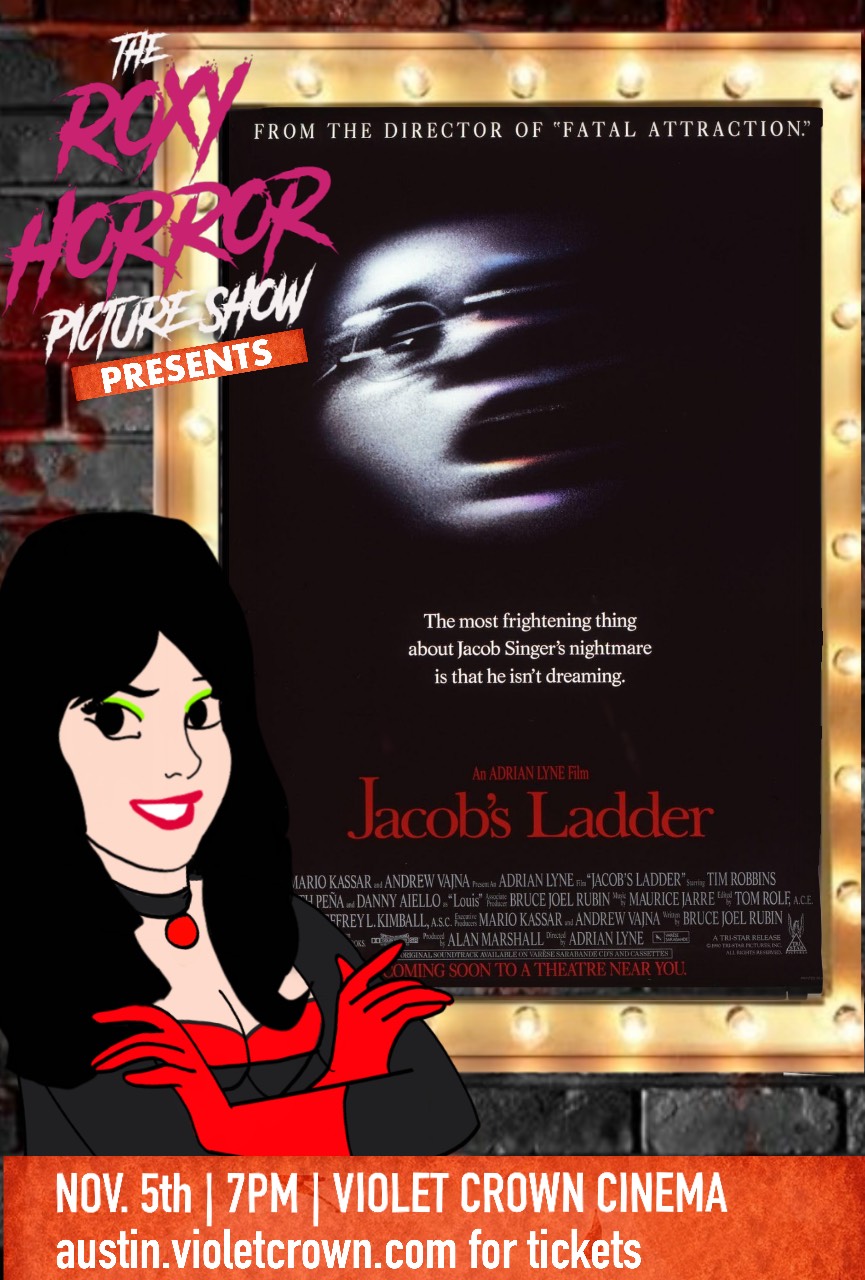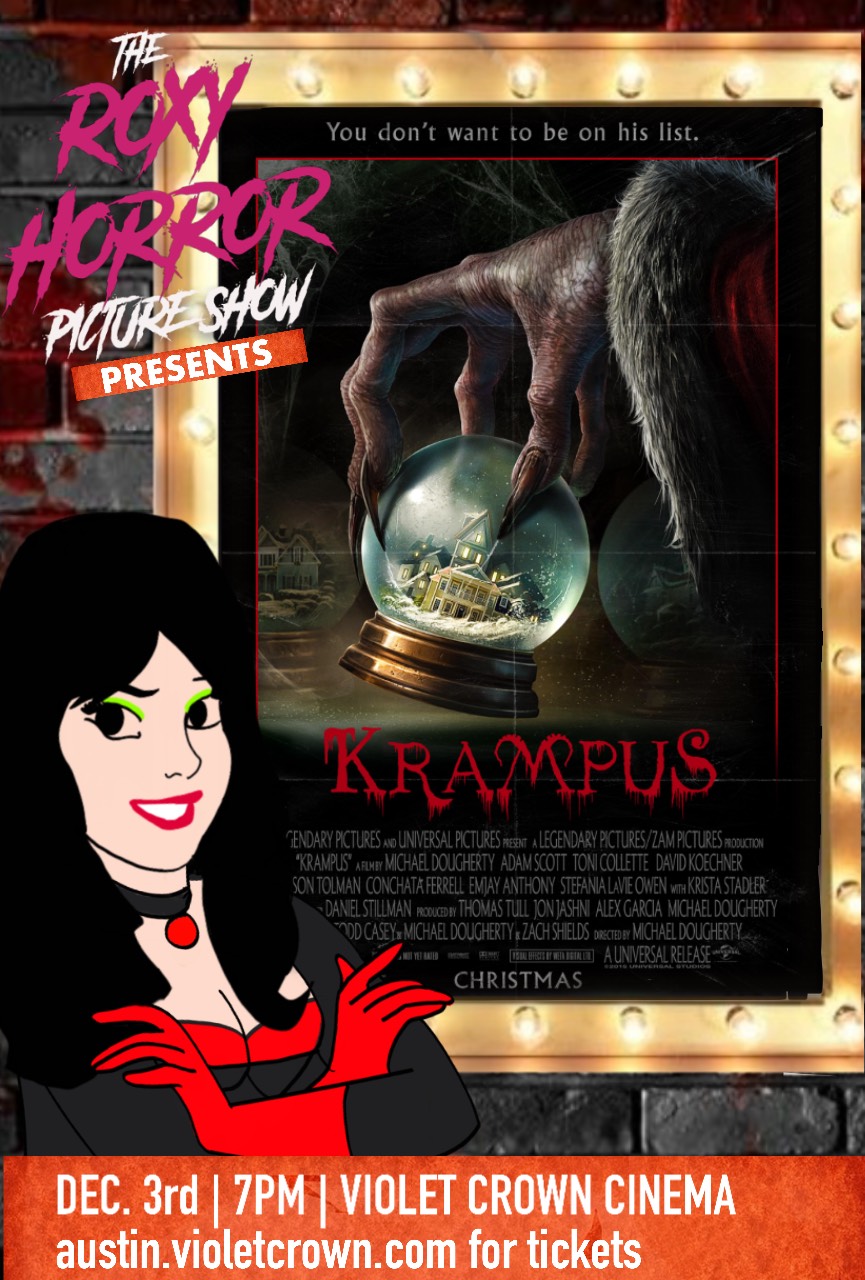Welcome back to “I’m All Out Of Love,” in which I take a pop culture subject (film series, director, actor, television show, etc) and dissect how my ‘love’ of them from early on slowly dwindled and what my current stance on them is.
The Undead. Ghouls. Walkers. Whatever you’d like to call them, zombies are ubiquitous in pop culture. Just look at any of the thousands of editorials that have come out in the last decade or so on that subject.
One of the more modern and popular examples of this is The Walking Dead, the AMC television series centered around humans attempting to survive the zombie apocalypse based on the long running comic book series by Robert Kirkman (which, just to say here, I’ve never read a single issue of). Since its debut on Halloween night 2010, the show has become a massive success, spawning merchandise, Halloween Horror Nights houses at the Universal Studios theme parks, and a recently announced spin off series. In fact, it’s so successful, AMC announced their intention to keep the show going for 12 whole seasons.
However, despite all the clamoring and love for the series that’s clearly there due to it’s success, it’s not a show I can consider myself a fan of anymore. Sure, I’ve watched the first four seasons of the show and the recent season 5 premiere, but nothing is really compelling me to move forward and continue with the rest of this new season. Why? Well, my enjoyment level of The Walking Dead is much like the level of safety its heroes often attempt to ascertain during the zombie apocalypse; occasionally serene, but compromised constantly. The show’s quality never really has managed to stabilize for me in its four season stretch, constantly walking the line between insightful character driven horror and dull attempts at character dynamics with the occasional zombie showdown. It’s a bit tough to explain without starting from the beginning.
The Spark
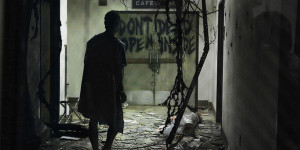
The Walking Dead initially drew me in with the promise of a weekly look into zombie apocalypse survival spearheaded by the extremely talented Frank Darabont, whose work on The Shawshank Redemption and The Green Mile showed his knack for understanding the human condition no matter what the genre he was working with, especially during the bleakest of times for his cast of characters. Plus, an ongoing series about surviving a post-zombie outbreak world really hadn’t been done before. Audiences had been exposed to plenty of zombie films that attempted to explore survival when surrounded by zombies, particularly in the wake of Day of the Dead and 28 Days Later. Yet, there hadn’t been a weekly depiction that emphasized the horror of survival on a week to week basis, so there was plenty of hype leading up to the pilot’s premiere.
And boy did it not disappoint. “Days Gone Bye” is still an powerful piece of horror television. Darabont does a damn impressive job of immersing us into the vast emptiness and hopelessness of civilization’s fallout, presenting the decay in an even bleaker fashion than 28 Days Later by showing off the decay of not just the city but also all the mangled left over zombies who are even struggling to survive in the desolated city. It helps that Andrew Lincoln as Rick Grimes really sells the confusion and emptiness after he awakens in the hospital, too horrified to comprehend what’s gone on in the weeks he’s been in his coma. Plus, his eventual encounter with Morgan and his son Duane gives this air of sympathetic melancholy, with Rick wanting to help yet realizing that he has to search for his own family. All of that and a chillingly gory finale gave the show the punch it needed to grab my attention and interest me watching further. This is where things get complicated.
The “Love” Affair
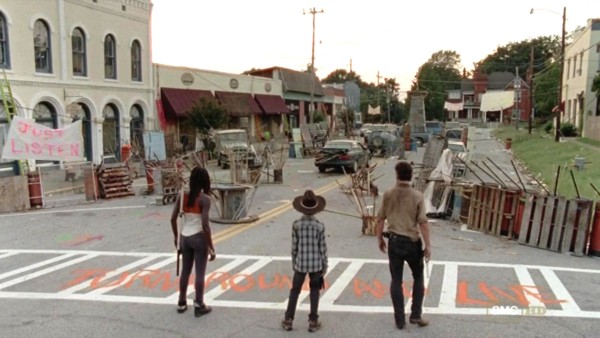
From a very early point in watching The Walking Dead, I came up with the best way to describe its quality level: consistently inconsistent. Right from Season 1, the quality definitely was a roller coaster ride, going from the peaks of horror in episodes like “Days Gone Bye” and “Guts” to the under developed and grating lows of episodes like “Vatos” and “TS-19.” It was clear that Frank Darabont had room to grow in terms of running a TV show, which I was willing to stick with in the second season… unlike AMC. Darabont being fired from the show’s showrunner position was an obvious red flag for many, but man did Season 2 prove that in spades with Darabont’s replacement Glen Mazzara. The first few episodes showed promise, with Shane’s signs of going insane after leaving Otis behind and the near death of Carl potentially bringing Rick and Laurie together while at Hershel’s barn. But then we stayed at that barn. For awhile. A long time. So long that I couldn’t stand it anymore.
The setting of the barn bored me to tears, with each zombie scenario getting more and more unremarkable & most of the characters growing more petty. The characters were especially a problem during that season, as most of them ranged from one note attempts at progressive & three dimensional (Shane, Lori, Carl) to just plain useless and unremarkable (Carol, T-Dog, Andrea). Sure, there were elements like Dale’s moral dilemmas or Rick & Hershel’s contemplative talks about the zombies in the barn, but it was all undercut by forced attempts at shock value, particularly with the predictable and overrated “reveal” of Sofia being a zombie in the barn, which I personally could see a mile away.
The whole point of this show was to emphasize the turmoil of the zombie apocalypse for compelling human drama. I wasn’t asking for characters that were likable or made sensible decisions all the time. They’re human. I get that. That’s what should be so interesting about these characters. That’s what drew people to the initial entries in George A. Romero’s Dead series of films: a group of survivors that represented the wide range of humanity and how they deal with the worst nightmare imaginable. Yet, despite all the evolution over 45 years of zombie fiction, The Walking Dead Season 2 felt less like the enthralling actions of Romero’s Night of the Living Dead or Dawn of the Dead and more like the trite unimpressive later entries in the series like Diary of the Dead or Survival of the Dead. Not even the occasional zombie attack or Greg Nicotero’s astounding make up effects could lift my spirits.
Yet, despite all of those issues in Season 2, I still gave Season 3 a chance… and I was so glad for it. Despite some very clunky elements like the Andrea storyline and a largely unimpressive finale, Season 3 really managed to bring the best out of the show. New characters like Michonne and The Governor spiced up the dynamics of the survivors and character arcs like Rick nearly cracking while dealing with the death of Lori & birth of his daughter or Daryl feeling torn between the group & his psychotic brother Merle resulted in some of the best drama the show’s ever done.
In particular, the episodes “Clear” and “This Sorrowful Life” managed to bring out some phenomenal balance between the gore filled zombie attacks and the characters’ desire to live despite inner turmoil. Morgan’s confessions to Rick in “Clear” and Merle’s final moments both as a human and zombie in ‘This Sorrowful Life’ managed to not only entertain, but keep me emotionally invested in ways I hadn’t been with this show in years. That spark I had felt from “Days Gone Bye” really had returned to the show and I hoped for much more of it in Season 4. I really did hope.
Nothing Lasts Forever
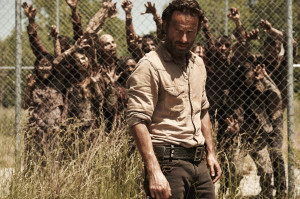
Season 4 of The Walking Dead had a lot to live up to and something to prove after the impressive but anticlimactic previous season for me. It started off promising enough: overcrowding in the prison environment, Rick questioning his position as leader of the now larger group, the threat of disease killing the humans. It was all there to be authentically developed, particularly with the hiring of Scott Gimple (writer of the previously mentioned episodes “Clear” and “This Sorrowful Life”) as the new showrunner. The future of the show seemed so bright… but that hope really didn’t last.
The initial surprises with Carol and Rick really had me interested, but once The Governor returned into the fold, things began to fall apart. Attempting a redemptive arc for the character never seemed genuine, with all his endeavors to help this family seemed cloying and disingenuous. That mid-season finale, mind you, was quite great. All sorts of shocking character moments and tense action that made the series as popular as it is, to the point where it felt like what should have happened at the end of Season 3. Just after losing me with The Governor, the show pulled me back in with the promise of more potential.
Then the rest of Season 4 happened and the cycle repeated. Flimsy character focused spotlights for characters like Daryl and Bob lacked any of the depth or interest it was trying to give me. Daryl’s a badass with a bad childhood? Great. What else is there to his character? Bob is an alcoholic who wants to prove himself to the group? Cool. What else does he have to offer that makes him a character I want to follow beyond those very simplistic archetypes? None of those answers came forth. The majority of the characters continued to be dull and it really dragged the season to a grinding halt, despite including an episode as shockingly phenomenal as “The Grove.”
By the end of the season, it hit me; the show is just a constant repeating cycle of uneven quality. For every fantastic episode that develops people like Rick or Carol or Michonne in an engaging fashion or showed off a new compelling aspect of surviving the zombie apocalypse, there’ll be two or three episodes in a row that fail spectacularly to make Daryl or Eugene Porter or any number of the other people in this elaborate ensemble interesting beyond very simplistic psychology and a few badass moments. The show isn’t nearly as horrendous as it was in Season 2, but it’s so consistently inconsistent in a cycle that’s become too damn predictable and a majority of characters that still don’t interest me. Ultimately, that recognition of the pattern made me more and more disinterested.
Final Thoughts
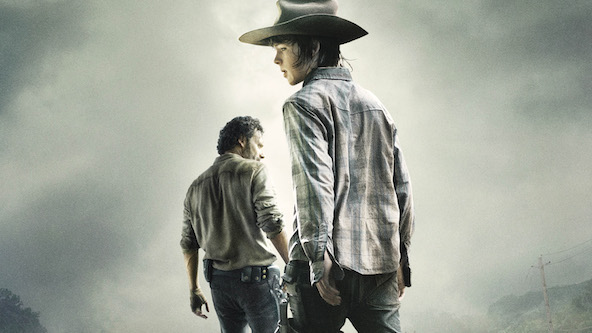
The Walking Dead remains a frustrating show for me. The show constantly exhibits signs that it has the potential to be a great show that illustrates how emotional and powerful horror can be on television, with episodes like “Clear,” “This Sorrowful Life,” or “The Grove” being some of the show’s shining moments. Yet, without fail, it’ll fumble the ball tremendously, giving us very one dimensional and unimpressive twists and turns with characters that pale so much in comparison to both those earlier episodes and the countless other examples from this current golden age of television. Even while watching the adrenaline paced and admittingly engaging Season 5 premiere “No Sanctuary,” I still couldn’t help but think about the likelihood of this excitement lasting. Would any of these character moments actually impact the story in a way that keep things interesting? Based on the show’s extremely shaky record, I really don’t believe so. Like I’ve said before, when great episodes like this come along, two or three god awful ones are soon to follow.
I honestly don’t know what it is. Maybe it’s a patchy staff of writers. Maybe it was the firing of Frank Darabont. Maybe it’s the fact that AMC is trying to milk this cash cow for as long as possible given the conclusion of Breaking Bad and the upcoming denouement of Mad Men, resulting in unnecessarily long sixteen episode seasons that feel stretched out and desires to keep this on the air for another seven seasons.
Whatever it is, something is still holding The Walking Dead back from being the great show I’ve seen glimpses of, but those glimpses really aren’t enough to keep me invested week to week. Maybe the whole of Season 5 will be great. And I hope it is. I really do hope the show can pull itself out of that rut it’s been in. But until then, I’m just going to have to find some other show featuring shambling undead beings that groan in horrific tones. Something on CBS will probably fit that bill.


 If you have a few extra dimes to spare, please help us help a fan in need. Thank you!
If you have a few extra dimes to spare, please help us help a fan in need. Thank you!




